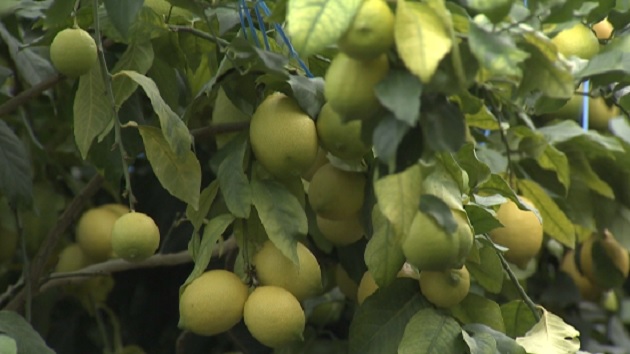
This year’s locally grown lemons have been shipped to the market since early November.
Consumers are choosing Jeju Lemons for its quality, freshness and safety.
Joseph Kim reports.
[slug] Tosan-ri, Pyoseon-myeon
This is a lemon greenhouse in (표선) Pyoseon.
The branches are heavily loaded with the sour yellow fruit.
Lemon growers feel a sense of accomplishment picking the fruit that they have taken care of for a year.
This year’s local lemon is being harvested from early this month.
[slug] Local lemon being harvested, Prices set high
All of the locally produced lemons are distributed by the National Agricultural Cooperative Federation.
This year, prices are set at 6,000 won per kilogram which is similar to last year’s.
That’s 50 percent higher than imported lemons.
The sugar content-acidity ratio of the locally grown lemon is three percent higher than that of imported ones.
[slug] Consumers choose Jeju lemon for its quality and safety
The Jeju lemon has a shorter distribution chain compared with imported ones. That means the local fruit is fresher and safer to eat.
The Jeju Dongbu Agricultural Technology Center encourages farmers to grow lemons as a substitute crop for mandarins.
27 farmers grow lemons on 10.4 hectares of land in Jeju.
[Reporter] Joseph Kim
[Camera] Park Byeong-june
[CG] Park Hye-jin
90 percent of lemons are imported.
Lemon growers hope the fruit to successfully compete with the imported crop and develop into a cash crop for the island.
Joseph Kim, KCTV





